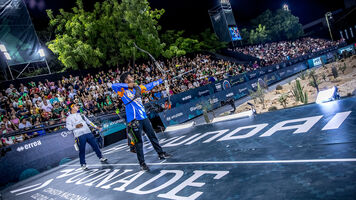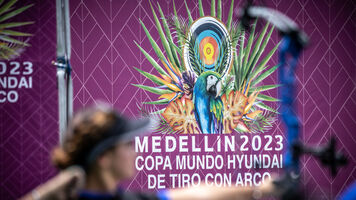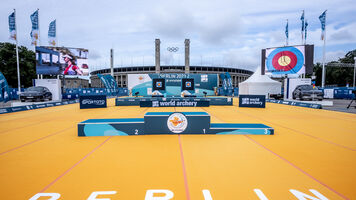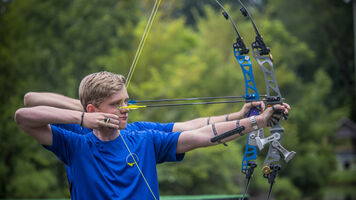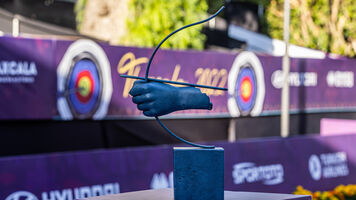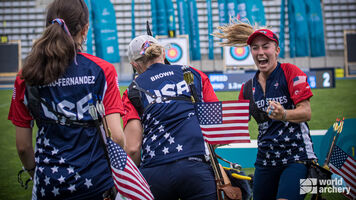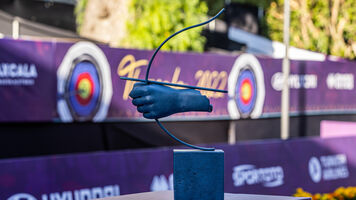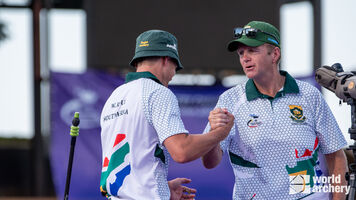Why technical delegates are key to transferring knowledge between Games

Technical delegates are appointed to ensure that a tournament takes place according to the rulebook and to support an organiser in planning and delivery. That role falls to World Archery staff at most international events – but for the Olympic and Paralympic Games, experienced volunteers are also called in.
Sheri Rhodes has been a technical delegate at the last two editions of the Paralympic Games.
Having been competition manager at Atlanta 1996 and serving on World Archery’s para committee since 2011, her experience as a judge and administrator was passed on to sport and venue teams in the organising committees in both London and Rio.

“Being part of the Games is a magical time for all who have the privilege to be involved,” said Sheri. “It is good to remember this while approaching every aspect of working on a Paralympics.”
Each event poses different challenges and strengths.
In London, the Paralympic venue (Royal Artillery Barracks) was different from the Olympic venue (Lord’s Cricket Ground), while in Rio both events were held in the Sambodromo with the same staff – but the Brazilian event had its own obstacles in budgeting.

“The most stressful is when implementing something new that hasn't been tested,” Sheri admitted. “You know in your mind and you've checked with others that it should work, but ‘in theory’ doesn't always come true in reality.”
“I think at least 80-90% of the work is done in advance, and the remaining little pieces should fall into place on the day of the event.”
As well as helping deliver any single Games, it is the role of the technical delegate to leave as much knowledge as they can as legacy – ensuring that the next wave of organisers learn from the successes, and mistakes, of those more experienced.

“Having done many things the ‘old school’ way assures me that if something fails, there is another way to get it done,” said Sheri.
National federations or regional tournaments can also apply the principle of a technical delegate. Sheri works on tournaments in the US: “If someone in the area is good at events, hire them to help and train people in their federation.”
On a personal note, one of Sheri’s best memories was taking a picture of six Games competition managers in London.
“Archery is really a life-long sport!”
Now also a candidate to become an international judge, a role that is more-and-more event focused – not just concerning application of the rulebook – the 62-year-old is still expanding on a long career in sports administration.
Back in 1976, she began head coach for Arizona State University.
Over 30 years, one Olympic Games in the organising committee, two Paralympics as technical delegate and 16 years as a coach of the US Olympic archery team (1988-2004), Sheri’s still got more to learn and more experience to share.


